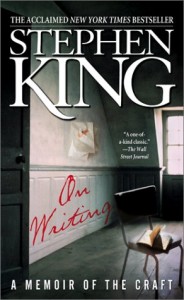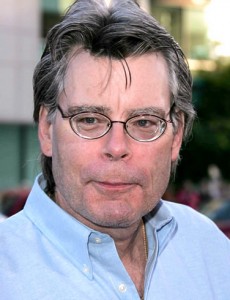The Book Challenge
Three years ago, as a lark, I challenged my friends, family and co-workers to try and read as many books as they could in a calendar year. The idea was to encourage reading more and better books and broaden literary horizons.
As a group we laid out some general guidelines:
- Reading for work or for school doesn’t count. Books shouldn’t be assigned, but chosen for fun.
- Any book counts, as long as it’s for ages 9-12 or up. This designation was to allow for the Harry Potter books which fall into that age category.
- If you’re learning a new language books written for younger children count too.
- Graphic novels, plays, and poetry all count.
The Book Challenge, as it came to be called, was all about setting reading goals. Most people settled on 50 books per year (a book per week with two weeks of vacation). Smaller goals were also encouraged like “10 of my 50 books will be poetry,” or something to that affect. My personal caveat is that I only count 10 graphic novels per year. Otherwise I'd only read comics.
It’s been a pretty big success, with monthly reads discussed on our Facebook group. (Please, feel free to join!) Most people take it on as a New Year’s Resolution, but we have people coming and going all the time.
In part, the Book Challenge is popular because, unlike a book club, the reading isn’t assigned and you can move at your own pace. Also, it’s reassuring to see other avid readers apologize for not being able to read books for months at a time.
Last year I completed just 29 books, a disappointment since I’d planned on doing a full 50. But now that I’m done school I feel that I can definitely reach that golden mark.
I’m off to a good start as well, getting through four books in the month of January:
- On Writing by Stephen King
- Captain America: Winter Soldier vol. 2 by Ed Brubaker and Steve Epting
- Gretzky’s Tears by Stephen Brunt
- Satchel Paige: Striking Out Jim Crow by James Sturm and Rich Tommaso
Personally, I’ve found that the Book Challenge keeps me focused on maintaining on an ongoing reading list and motivated to keep plowing through it. And as Run DMC said, “From the front to the back, as pages turn, reading is a very fresh way to learn.”
Book Review: On Writing by Stephen King
 Stephen King’s On Writing is one of the best books I’ve read on how to become a writer. Not necessarily a professional scribe, but how any author can hone their craft until their work becomes readable and entertaining.
Stephen King’s On Writing is one of the best books I’ve read on how to become a writer. Not necessarily a professional scribe, but how any author can hone their craft until their work becomes readable and entertaining.
On Writing is full of King’s wit and charm as he explains how he builds his stories from the ground up. His encouraging voice is directed at fiction writers at the start of their careers, but his advice can be applied to anyone who wants to pursue their creative passion.
The book is divided into four parts: C.V., Toolbox, On Writing and then On Living.
C.V. is a short memoir that focuses on King’s life. As King says in the introduction: “This is not an autobiography. It is, rather, a kind of curriculum vitae – my attempt to show how one writer was formed,”
Some of the moments are tough to get through, particularly King’s upsetting history of drug and alcohol abuse. Fortunately, the entire section is spiked with his self-deprecating humour. Any fan of King’s work will enjoy reading this portion of the book.
Toolbox discusses the skills that every writer needs to be readable. Things like grammar, vocabulary, form and style. It’s the shortest part of the book, but still important and King, a former high school English teacher, makes it as entertaining as anyone could hope.
On Writing is the real meat of the book, where King explains how young writers should put their skills to good use. His ideas about drafting, story composition and research are all informative. In particular, I like how blue collar he is in his approach.
“[I]f you don’t want to work your ass off, you have no business trying to write well – settle back into competency and be grateful that you have even that much to fall back on,” King says in the introduction to the section.
According to King, his theories about writing and what it takes to succeed as an author are not popular with certain literary circles, but they appeal to me. Not just because it means there’s hope for the novice writer, but because I think that analyzing and honing one’s craft (whatever it may be) is the best way to succeed in any field. To see it applied to writing by one of the most widely read authors of the 20th century only confirms this.
The entire tone of the book is light-hearted and informal, with King making funny asides and offering insight and commentary about his canon, as well as the work of an array of authors including Cormac McCarthy, Ernest Hemingway, Tom Wolfe, Elmore Leonard and H.P. Lovecraft.
In On Living, the book’s postscript, King recounts the events surrounding the car accident that nearly took his life during the composition of On Writing. I say ‘surrounding’ because he can’t remember the actual event – his head smashing through the oncoming windshield of a van took care of that.
It’s the most moving part of the book, and possibly the most stomach-turning writing of King’s accomplished career. His description of what happened to his body, particularly his right leg which was broken into “so many marbles in a sock”, literally had me squirming on my couch.
On Writing will appeal to two groups of people: Stephen King’s fans will be attracted to the C.V. and On Living sections where they can learn about their favourite author. Aspiring novelists will prefer the Toolbox and On Writing sections for King’s insight into his craft.
For everyone else though, it can still be a quick, fun read that will make them think twice about Stephen King and the art of writing.